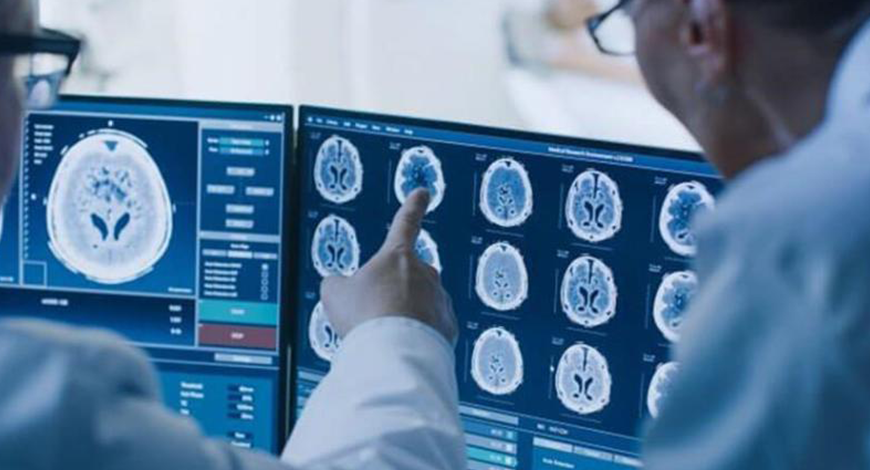Trends
Here is everything you want to know about AI in radiology

As technology evolves at a rapid pace, its influence across various sectors is undeniable. The healthcare industry in radiology has undergone significant transformation due to technological advancements. Artificial intelligence (AI) has fundamentally changed how medical professionals diagnose and care for patients. This article will explore the fusion of technology and healthcare by examining the insights provided by AI in radiology.
Transforming diagnosis
One of the main advancements brought by AI to radiology is its capacity to enhance diagnostic processes. By employing AI algorithms to analyze images, radiologists are relieved from sifting through numerous scans to identify anomalies accurately. Instead, they can rely on AI-driven platforms that swiftly and effectively pinpoint abnormalities within moments. Speed plays a role in diagnosing conditions like cancer, where early detection greatly enhances treatment outcomes. AI radiology companies help expedite this procedure, reducing delays and ensuring that patients receive effective treatment.
Enhancing healthcare accessibility
Accessing quality healthcare remains a challenge in many regions worldwide. Frequently, underserved communities lack trained radiologists or top-tier imaging equipment. Integrating AI software into their arsenal can help bridge this accessibility gap. AI-driven tools empower healthcare professionals to accurately interpret medical images even without specialized training. This technology ensures that remote regions can promptly diagnose ailments, lessening the necessity for patients to travel far for specialized consultations.
Customizing treatment plans
While precise diagnoses are critical, treatment strategies often necessitate personalized approaches tailored to each patient’s specific requirements. Here, too, technology steps in with solutions. AI algorithms can sift through vast amounts of data, including medical histories, genetic profiles, and past treatment outcomes resembling similar cases. By harnessing the machine learning capabilities embedded in these algorithms, healthcare providers can pinpoint patterns that may positively influence treatment decisions. Moreover, advanced AI systems have the potential to forecast how patients might respond to treatments. Equipped with this foresight, physicians can make informed choices by selecting the most suitable treatment for each individual.
Improving workflow efficiency
As healthcare professionals strive for top-notch care delivery, optimizing workflow efficiency is paramount. AI tools possess the capacity to streamline radiologists’ workloads and boost their productivity. Traditionally, radiologists had to invest significant time analyzing imaging studies and crafting reports. The integration of AI technologies allows them to automate tasks like image analysis and report creation. This helps lighten the workload for radiologists, giving them time to focus on cases that require more hands-on interpretation and decision-making.
Ensuring data protection
In any industry where technology plays a role, concerns about safeguarding data always come into play. In the healthcare sector, safeguarding patients’ sensitive information is crucial. Therefore, any integration of AI in radiology must come with security measures. Well-crafted AI systems prioritize the privacy of data and utilize advanced encryption methods to ensure confidentiality. Moreover, there are a number of monitoring systems in place to promptly identify and address any security breaches.
Collaborative partnership between humans and AI
Despite the advantages of using AI in radiology, it should be seen as a tool rather than a substitute for human expertise. While algorithms can swiftly process datasets and pinpoint areas of concern, final interpretations should always be made by qualified medical professionals who combine their experience and knowledge with AI insights. Furthermore, digital solutions need to undergo testing not only for accuracy but also for clinical relevance before being incorporated into daily practice. Ongoing assessment guarantees that these tools deliver enhancements while reducing risks linked to errors or biases.
The future of radiology
As technology advances rapidly, its impact on healthcare will undoubtedly continue to expand. In the field of radiology, it is anticipated that AI algorithms will improve in sophistication over time. AI-driven software has already been created with advanced capabilities, such as identifying changes in medical images that may go unnoticed by the human eye. Furthermore, ongoing research aims to harness AI’s potential for predicting outcomes and investigating treatment options.
Conclusion
The fusion of technology and healthcare in radiology has marked the beginning of an era characterized by enhanced diagnostics, better access to care, personalized treatment strategies, streamlined processes, and strengthened data security. These advancements are poised to transform patient care, with AI serving as an aid rather than a substitute for healthcare professionals. While it is essential to verify the accuracy and applicability of AI algorithms before integrating them into practice, it is evident that technology will continue pushing boundaries in the realm of healthcare. The future holds promise for innovations that will benefit both patients and medical practitioners alike. Health Tech Zone












